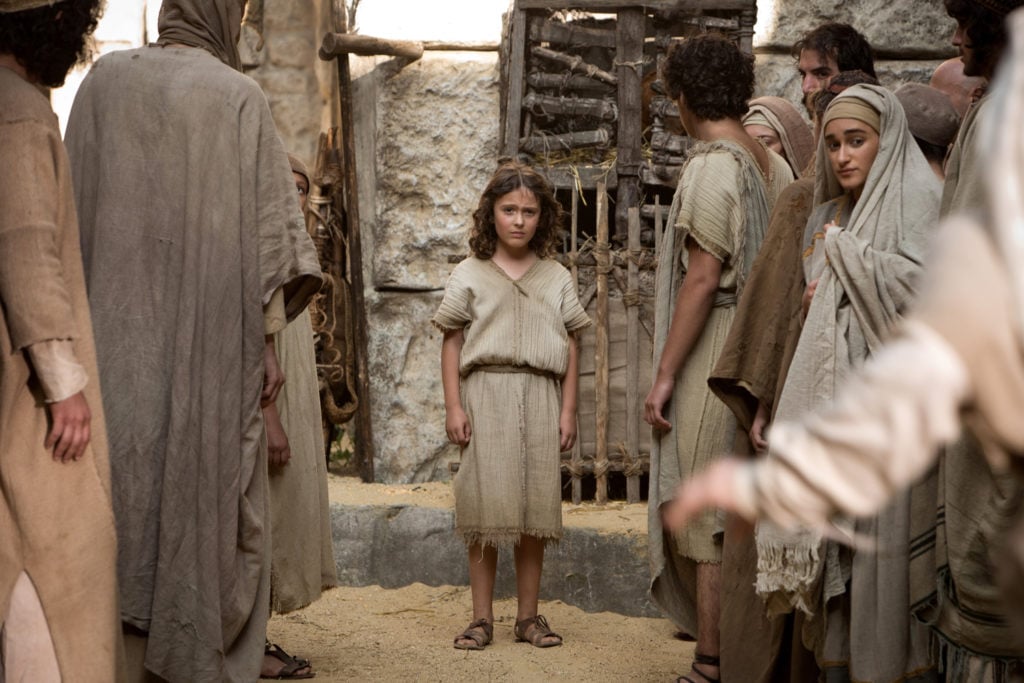Hollywood is banking on Christians this Easter; that is evidenced by the number of “faith based” films being released this year. In years past all that can be counted on each Easter was a new batch of conspiracy theories and documentaries about why this or that story in the Bible cannot be trusted and why this whole Christianity thing is s sham.
And then there was the new movie Risen (see my review here). And now the new movie The Young Messiah based on the novel by Anne Rice (yes, that Anne Rice of Vampire fame). What could possibly go wrong?
How Was the Film Quality Of the Young Messiah?
First, let’s talk about quality. While not as well produced as Risen, The Young Messiah is not cheesy. It was pretty well done and even has some major actors in it like Sean Bean (you might remember him as Boromir in the Lord of the Rings trilogy). In my view it doesn’t fall into the B-grade films category with mediocre acting and overly cliché Christian moments.
The location was credible too in terms of 1st century Jerusalem. And while there was conflict and tension, some modern movie-goers (especially secular movie reviewers and critics might think it was slow in its development. As for me I was engaged because I know the story (or what we can know of this part of the story) and I wanted to see what plot choices and creative direction they were going to pursue.
Does The Young Messiah Deserve a PG-13 Rating?
In terms of the PG-13 rating, again I would say it is probably well earned because this is not Marvel Avengers’ violence. It is real first century “we know this stuff really happened” kind of violence involving crucifixions, Roman soldiers, Jewish revolts, and the Herod family known both for violence and sensuality. The movie only shows implied aspects of each of these, but still, I’d know your kids under 13 well before you let them see it.
Is The Young Messiah Historically and Biblically Accurate?
Now the fun part. The historical and biblical accuracy is a mixed bag. There are characters it gets right (Joseph, Jesus, Mary, and Herod) and cultural setting things it gets right too (Passover, the Jewish Temple, Rabbis, and the Oppression of Jewish people by Rome). (SPOILER ALERT) But the heart of this film surrounds a year in the life of Jesus at age seven…and he’s a miracle worker and that is why he is being hunted by Severus (the Roman centurion). Now the Gospels reveal that Jesus is a miracle worker as an adult, but this film seems to rely on and adapt non-historical accounts from apocryphal works like the Infancy Gospel of Thomas where Jesus allegedly heals a bird and other feats. (You can see what I think the earliest and best historical evidence says around Jesus here). Another example is that in the movie Jesus was still too young when the Magi came. He would have likely been a toddler when they arrived.
The Biblical accounts in typical ancient fashion given the well-established genre of the Gospels as “Ancient Bios” share very little of Jesus childhood (I have written more on this elsewhere). We know of his birth, when he shows up at the temple later in life, and then when he launches his messianic mission of teaching and healing as an adult. So this movie really uses a good bit of historical imagination based on less than historically reliable sources. But it does so in a reverent and even respectful sort of way. That’s at least pretty good right?
So what does it do well? First, it helps us engage a fully human Jesus. It is always helpful for people and especially Christians committed to the full deity of Jesus to also realize that he was also fully human. Both are 100% true. For me that was the overwhelming benefit of this film. It also humanized Mary and Joseph as they tried to parent Jesus with the little they had been told. Also important is that Jesus would have grown in his self-understanding of his calling from God to be Israel’s Messiah over the course of his life.
Another benefit of the film is that it shares the supernatural battle going on as Satan is in many of these scenes and even interacts with the young Jesus at points. Satan is not all-powerful and all-knowing—he too would have to figure out who this Jesus really was and I thought that was a fascinating dynamic in this film to watch unfold.
Bottom Line?
Even as I walked out of the theatre the two posters I passed struck me—Dead Pool and Zootopia. Both of which are utterly trivial in comparison to some of the themes and questions raised in The Young Messiah.
My hope is that this movie—imperfect though it is—will make people curious about Jesus. And might prompt them to see if these things are so. Could Jesus really be the savior of the World? Because in the end, all of us will have to answer the grown up Messiah’s question—Who do you say that I am?
